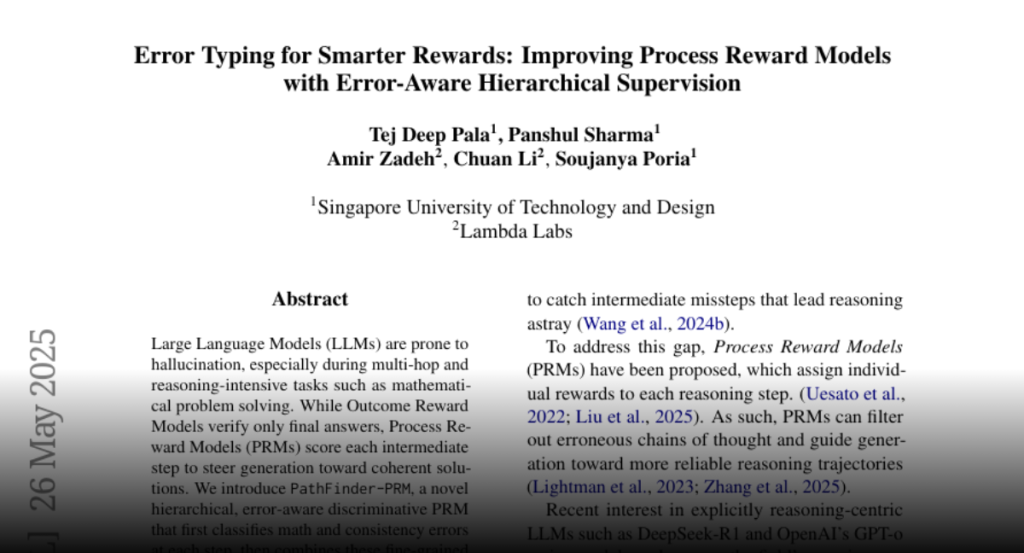PathFinder-PRM, a hierarchical and error-aware Process Reward Model, improves mathematical problem-solving by fine-grained error classification and step correctness estimation, achieving state-of-the-art PRMScore with reduced data usage.
Large Language Models (LLMs) are prone to hallucination, especially during
multi-hop and reasoning-intensive tasks such as mathematical problem solving.
While Outcome Reward Models verify only final answers, Process Reward Models
(PRMs) score each intermediate step to steer generation toward coherent
solutions. We introduce PathFinder-PRM, a novel hierarchical, error-aware
discriminative PRM that first classifies math and consistency errors at each
step, then combines these fine-grained signals to estimate step correctness. To
train PathFinder-PRM, we construct a 400K-sample dataset by enriching the
human-annotated PRM800K corpus and RLHFlow Mistral traces with
three-dimensional step-level labels. On PRMBench, PathFinder-PRM achieves a new
state-of-the-art PRMScore of 67.7, outperforming the prior best (65.5) while
using 3 times less data. When applied to reward guided greedy search, our model
yields prm@8 48.3, a +1.5 point gain over the strongest baseline. These results
demonstrate that decoupled error detection and reward estimation not only boost
fine-grained error detection but also substantially improve end-to-end,
reward-guided mathematical reasoning with greater data efficiency.

